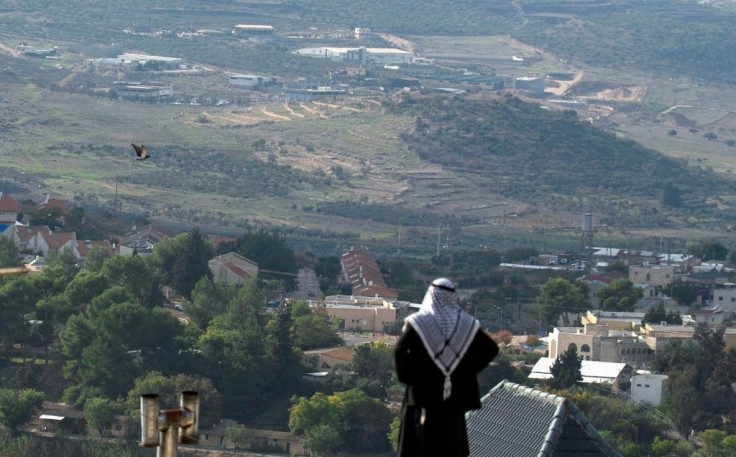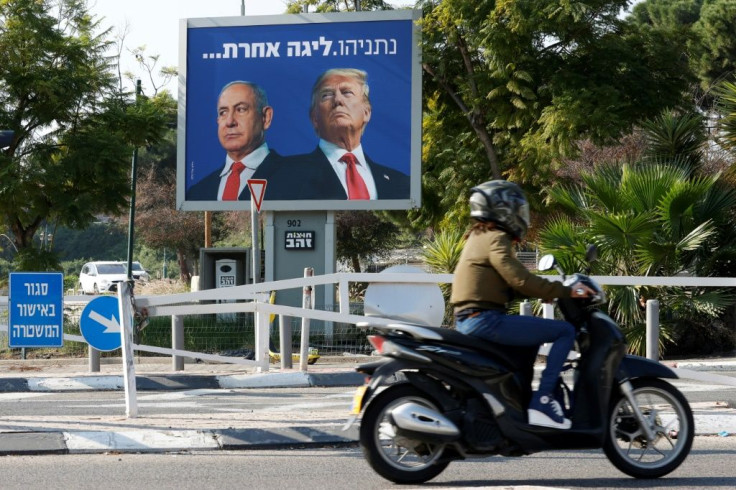Netanyahu Orders New Israeli Settlement In West Bank
Israel's prime minister on Monday directed authorities to approve construction of 800 new homes for Jewish settlers in the occupied West Bank, days before US President Donald Trump's strongly pro-Israel administration departs office.
The move also comes as internal political jockeying intensifies ahead of the Jewish state's own election, its fourth in two years, following the collapse of a fractious coalition between right-wing premier Benjamin Netanyahu and his centrist Defence Minister Benny Gantz.
"Prime Minister Benjamin Netanyahu has directed that plans be advanced for the construction of about 800 units in Judea and Samaria," a statement from his office said, using biblical terms for the West Bank.
US President-elect Joe Biden, who will be sworn in next week, has indicated that his administration will restore Washington's pre-Trump policy of opposing settlement expansion in the occupied Palestinian Territories.
All Jewish settlements in the West Bank are regarded as illegal by much of the international community.

The settlement announcement came a day after Gantz opposed plans to legalise under Israeli law a series of settlement outposts, which, given his control of the defence portfolio, in effect takes this proposal -- one that has strong appeal for right-wing voters -- off the table.
Settler leaders meanwhile accused Gantz of intending to push ahead with retrospectively legalising under Israeli law Palestinian construction in Israeli-controlled parts of the West Bank.
Late on Monday, Gantz's office said the defence ministry would be advancing next week "Palestinian construction initiatives" in the West Bank, including approving hotels in the Bethlehem area, expanding Palestinian towns and approving existing construction work.
The election is set for March 23 and Netanyahu is widely expected to make a series of plays for right-wing votes, including by bolstering his pro-settlement credentials, before the vote, according to Israeli political analysts.

A series of recent polls indicate the veteran prime minister is facing a strong right-wing challenge from pro-settler candidate Gideon Saar, who defected from Netanyahu's Likud party last month to run against the premier.
Yigal Dilmoni, head of the Yesha Council settlement lobby, brushed away Monday's greenlighting of the 800 units as "normal procedure", while reiterating demands that the outposts be legalised, which would enable them to receive infrastructure and services.
Saar meanwhile issued a statement calling on Netanyahu and Gantz to "rise above the disputes and regulate the status of these communities".
The statement from Netanyahu's office said that 100 of the new units were to be built in the Tal Menashe settlement, where French-Israeli Esther Horgen was murdered last month.
Israel's security services have said the settler was murdered by Palestinian Mohammed Cabha.
Other units would be built in the Nofei Nehemia outpost, according to the premier's statement.
Netanyahu's order to advance settlement construction is not final, with the process having to clear several bureaucratic phases and possible legal challenges from anti-occupation groups before any construction begins.
The move was slammed by anti-settlement Israeli NGO Peace Now as a "disgrace" aimed at telling the Biden administration that "Israel is seeking a confrontation."
Trump's administration gave unprecedented US support to settler groups, highlighted by a declaration from Secretary of State Mike Pompeo in 2019 that Washington no longer viewed settlements as being in violation of international law.
Pompeo in November also became the first top US diplomat to visit a settlement in the West Bank, which Israel has occupied since the 1967 Six-Day War.
There are currently some 450,000 Jewish settlers in the West Bank, living amid an estimated 2.8 million Palestinians.
© Copyright AFP {{Year}}. All rights reserved.





















